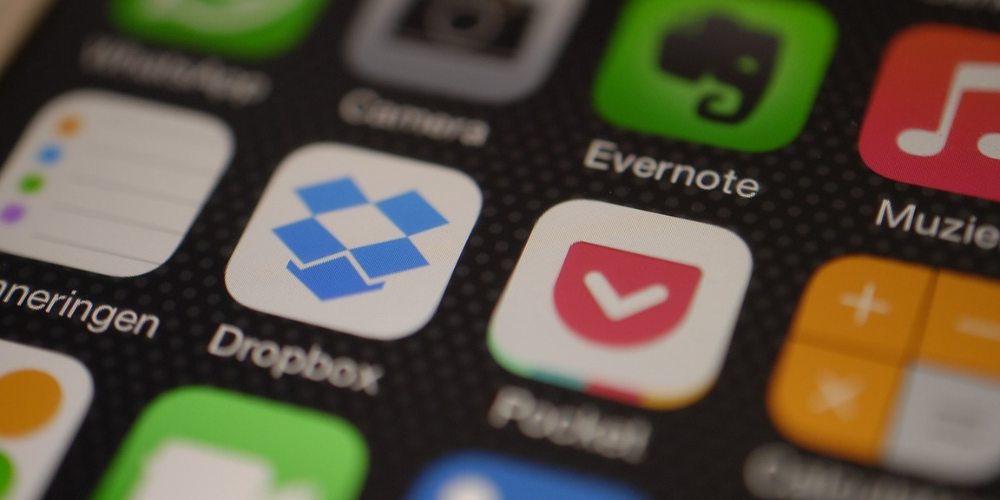Maximizing Cloud Storage Apps for Comprehensive Mobile Data Backup
Jan 22, 2024

In the digital age, data has become one of the most precious commodities, particularly the personal data housed on our mobile devices. From precious family photos and important contacts to critical documents and emails, our mobile devices are treasure troves of information that need safeguarding. Cloud storage apps offer a seamless solution for backing up this data, ensuring that we are protected against device failures, theft, and accidental losses. In this article, we'll explore how you can leverage the power of cloud storage apps to back up your mobile data effectively.
Understanding Cloud Storage and Its Benefits
Cloud storage has revolutionized the way we manage and back up our data. By utilizing remote servers hosted on the internet to store data, cloud storage apps provide a secure and accessible means to safeguard our personal information. This approach offers several advantages over traditional local storage methods, such as external hard drives or memory cards. Firstly, cloud storage provides access to your data from any device with an internet connection, offering convenience and flexibility. Secondly, it offers enhanced security features such as encryption and remote wiping capabilities, which are invaluable if your device is lost or stolen. Lastly, cloud storage services often come with redundant backup systems, ensuring that even if one server fails, your data remains safe and recoverable from another location.
To fully take advantage of cloud storage apps, it is crucial to understand the different services available and the features they offer. There are numerous providers, such as Google Drive, iCloud, Dropbox, and OneDrive, each with unique benefits tailored to different user needs. For example, some services may offer more storage space for free, while others might provide better integration with certain operating systems or productivity suites. It is important to assess your personal or business needs, the types of data you need to back up, and the devices you use before selecting a cloud storage provider.
Selecting the Right Cloud Storage App

Choosing the right cloud storage app is essential for an efficient backup process. When making your selection, consider the compatibility of the app with your mobile device's operating system. Most cloud storage providers design their apps to work seamlessly with both Android and iOS, but it's always wise to check for any limitations. Additionally, assess the storage capacity offered by the app. Many providers offer a free tier with limited storage, which may be sufficient for backing up essential data like contacts and calendars. However, if you need to back up larger files such as high-resolution photos and videos, you might need to opt for a paid plan that provides more space.
Another factor to consider is the ease of use and automation features of the cloud storage app. The best apps offer a user-friendly interface and simple setup process, making it easy to start backing up your data without a steep learning curve. Look for apps that allow for automatic backup, so you don't have to manually upload files each time. This ensures that your latest data is always backed up without requiring constant attention. Additionally, some apps offer the ability to schedule backups at specific times, which can be convenient if you want to ensure backups occur during periods of low device usage, such as overnight.
Optimizing Backup Settings for Comprehensive Coverage
Once you have chosen a cloud storage app, it's important to optimize your backup settings to ensure comprehensive coverage of your mobile data. Start by exploring the app's settings to identify which types of data can be backed up. Most apps allow you to select specific categories such as contacts, messages, photos, videos, and app data. Make sure to enable backup for all categories that are important to you. Furthermore, if you use multiple devices, check whether the app supports cross-device syncing and backup. This feature is invaluable for keeping all your devices up to date with the latest data.
To maximize your backup coverage, also consider the frequency of backups. While automatic and scheduled backups are convenient, you may want to perform additional manual backups before significant events, such as traveling or updating your device's operating system. This provides an extra layer of protection and ensures that you have the most recent data stored securely in the cloud. Additionally, be mindful of your device's battery life and data usage when setting up backup frequencies. Some apps allow you to specify that backups should only occur when connected to Wi-Fi and while the device is charging, which can help conserve battery life and avoid exceeding data limits on your mobile plan.
Maintaining Security and Privacy

Security and privacy are paramount when backing up your mobile data to the cloud. Reputable cloud storage apps employ robust encryption protocols to protect your data both during transfer and while at rest on their servers. However, the responsibility for maintaining security also lies with you as the user. Ensure that you use strong, unique passwords for your cloud storage account, and take advantage of two-factor authentication (2FA) if it's available. This adds an extra layer of security by requiring a second form of verification, such as a code sent to your phone, in addition to your password.
Privacy is another crucial aspect to consider. Read the privacy policy of the cloud storage provider to understand how your data will be used and whether it will be shared with third parties. Some providers offer additional privacy features such as "zero-knowledge" encryption, where only you have the key to decrypt your data, ensuring that not even the service provider can access your information. Be sure to configure your privacy settings within the app according to your comfort level, and be cautious about which files you choose to back up to the cloud. Sensitive documents or personal information should only be stored with providers you trust and with the appropriate security measures in place.
Conclusion: Safeguarding Your Digital Life
The ubiquity of mobile devices in our daily lives has made the protection of our digital data more important than ever. Cloud storage apps provide a convenient and secure method for backing up this data, ensuring that our digital memories and information are preserved against unforeseen events. By selecting the right cloud storage app, optimizing backup settings, and maintaining strong security and privacy practices, you can rest assured that your mobile data is safe and accessible whenever you need it. As we continue to generate and store vast amounts of data on our mobile devices, taking full advantage of cloud storage apps for backup purposes is not just a convenience—it's a necessity for safeguarding our digital life.







